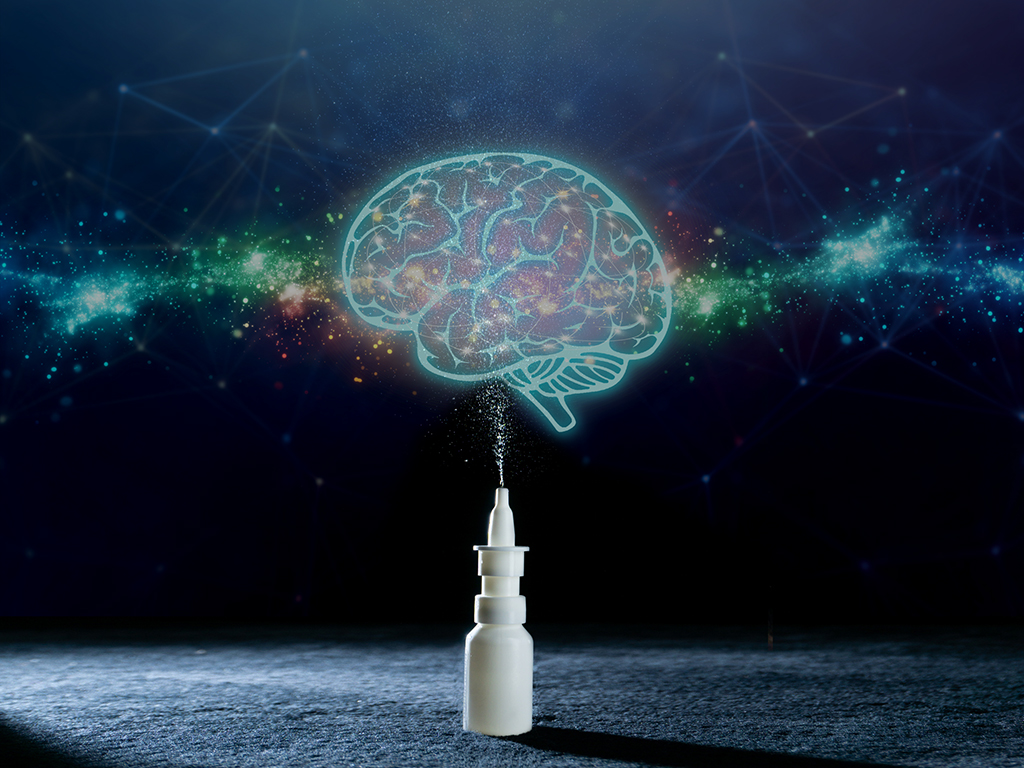New treatment for brain trauma: Single-dose nasal spray could halt cycle of neuroinflammation

Researchers at the Texas A&M University School of Medicine are working to combat the severe outcomes of traumatic brain injury, also called TBI, with a non-invasive therapeutic they believe could prevent the cycle of neuroinflammation that leads to long-lasting complications.
TBI has been at the forefront of public attention in recent years. More than 50 million TBI cases occur annually, creating a global financial burden of $70 billion and making TBI a major health problem. In America, more than 611 TBI-related hospitalizations occur per day. The hallmarks of mild to moderate TBI are progressive cognitive decline and changes in mood resulting in long-term behavioral impairments, including the development of mental disorders in surviving patients. These devastating outcomes have fueled researchers’ investigations into how to resolve the long-lasting issues that follow TBI.
The devastating outcomes of TBI have been linked to a condition that develops in the brain after TBI called chronic neuroinflammation. Prior work has identified the actors in this inflammatory process, which include a specific type of central nervous system cell called microglia, or resident immune cells of the brain. After a person sustains a TBI, these cells become activated as a response to neuron death. While such activation is beneficial for removing cellular debris in the acute phase after TBI, their unrelenting activation, called chronic neuroinflammation, adversely affects brain function. These cells begin a mechanism that works through the signaling system p38/MAPK, known for communicating external stimuli into the body. Hyperactivation of this pathway in microglia leads to a continuous release of multiple pro-inflammatory molecules, which then affect and degrade neuronal function, leading to brain tissue loss and myriad symptoms.
Previous work has explored using mesenchymal stem cells (MSCs) as a means for modulating the responses of the immune system. These cells can self-renew and can develop into various types of cells. Beyond this capacity, MSCs can also secrete anti-inflammatory cytokines and other molecules that directly modulate the inflammatory response of the immune system through receptors on their cell surfaces that sense the presence of pro-inflammatory molecules.
Researchers in the laboratory of Ashok K. Shetty, professor and associate director of the Institute for Regenerative Medicine and professor in the Department of Cell Biology and Genetics at the Texas A&M School of Medicine, capitalized on research into the field of extracellular vesicles (EVs) as a means of solving the question of how to prevent the cycle of neuroinflammation from the beginning.
Shetty said using stem cell-derived EVs to combat neuroinflammation after TBI stems from their potent anti-inflammatory effects noted in cell culture assays and other disease models. EVs are nanosized vesicles, essentially a means of transporting cellular cargo, such as proteins, lipids, microRNAs (miRNAs), and DNA, to targeted cells. To understand the capabilities of EVs, Shetty’s group used small RNA sequencing on EVs shed from MSCs. The findings from the sequencing showed at least eight miRNAs capable of specifically inhibiting the inflammatory processes that have neuroprotective or brain repair capabilities. These miRNA molecules within EVs are released when they come in contact with target cells.
“Remarkably, EVs shed by MSCs are naturally enriched with miRNAs capable of inhibiting the various processes that lead to chronic neuroinflammation after TBI,” said Maheedhar Kodali, research scientist at the Institute for Regenerative Medicine and the first author of the research article. Their work was published in the February 2023 issue of the journal Brain Behavior and Immunity.

